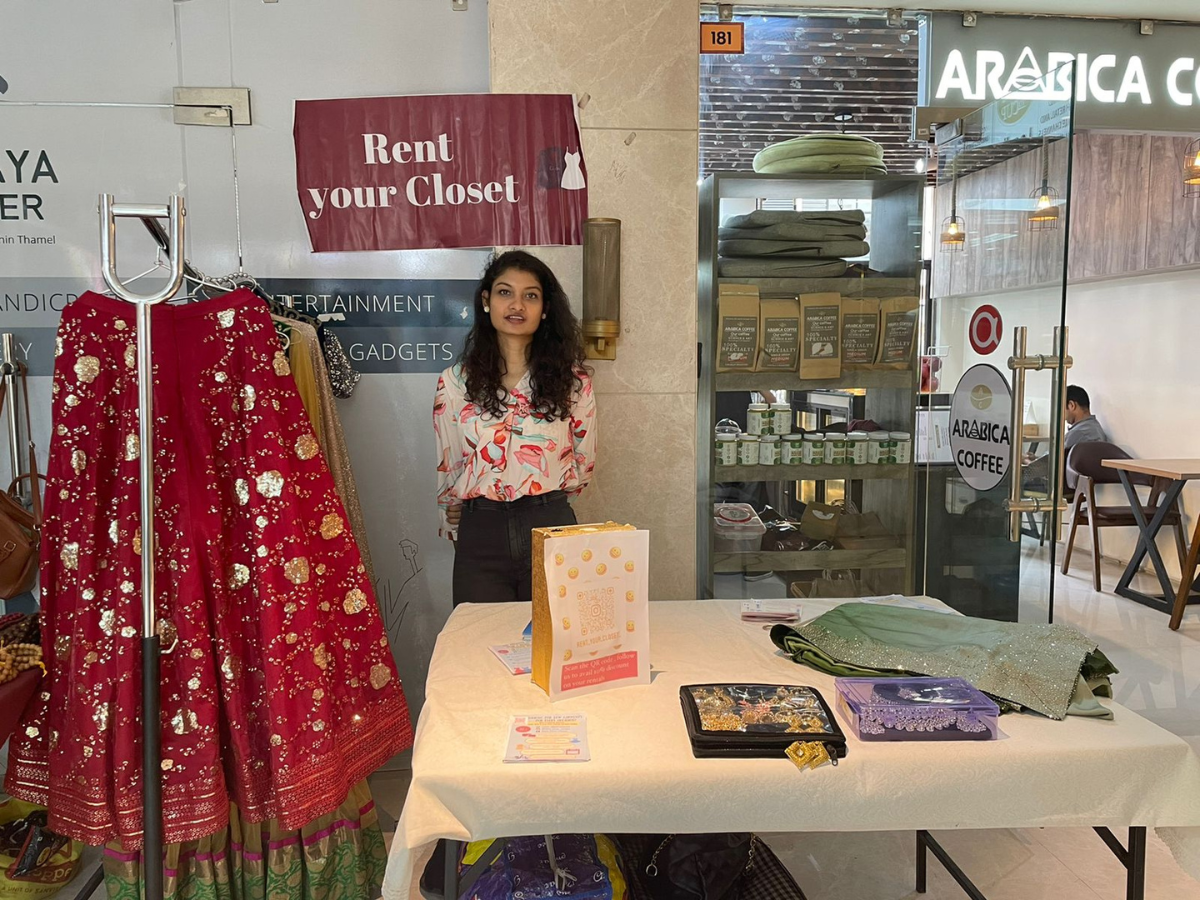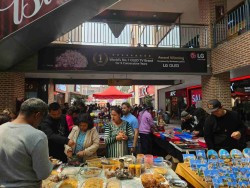Market

Behind the glitz and glamour of weddings and parties are women who have spent hours and loads of money deciding their perfect outfits. And Rohini Rathi, a 27 years old young entrepreneur from Kathmandu, is one of them.
Before she started Rent your Closet in 2021 she remembered her university days in London where she wished to look the best on the prom night of her master’s degree.
When Rathi was finding an outfit to suit the occasion, she stumbled upon the concept of renting clothes. She grabbed the opportunity and rented her outfit through a store in London.
And that was just the beginning. In the proceeding days, she planned and started working on it to make it happen.
When she wrote her final dissertation on the rental economy in India to dig deeper into the South Asian market, she realised a gap in the Nepalese market. That’s when she thought she could fill in. Thus, this idea gave birth to a unique venture called ‘Rent your Closet’.
“There has to be somebody who has to start that and then people will jump on the bandwagon,” Rathi, who belongs to a business family, told NepalMinute.
Established in March 2021, Rent your Closet can be called an Air BnB of fashion that offers customers an opportunity to rent out occasion wear, helping them save money and build a sustainable future.
Using a unique business model, Rathi has managed to survive in the erratic pandemic environment and build a profit-making venture. And even though many challenges are standing in the way, the future looks promising.
Motive
Rent your Closet has a range of occasion wear catering to both men and women. While women can rent Sarees, Lehengas, Cocktail Gowns and more, men can rent Sherwani and Daura-Suruwal.
The main motive behind this business is to reduce the pollution the fashion industry has created, according to Rathi. Fashion is the second most polluting industry in the world, after the gas and oil sector.
“One Lehenga can be at least worn seven to eight times. That way we are reducing the carbon footprint,” added Rathi.
However, while they are trying to promote the concept of sustainability to the Nepalese market, the journey has been a little bumpy. “I don't think you can market sustainability here because people don't know about it,” she said.
Business Model

The backend of the company consists of 15 mid-range and high-end local Nepali designers, who are paid on a commission basis. But the customer-facing side is entirely online.
When a customer wishes to rent clothes, they message the company on Instagram or Facebook. The customer selects the outfits plus the rental days, which are either three days or seven days.
“For a lehenga which is retailing at about Rs. 25,000, it will have a rental value of Rs. 4,000 for three days and Rs. 4,500 for seven days,” said Rathi.
For every additional day, the customer is charged a five percent increase.
After all these decisions are in place, a security deposit is required to be paid through e-Sewa, which is 40 percent of the actual value.
The customer, then, sends in their measurements to the company. The desired outfit is fitted, dry-cleaned and delivered to the customer’s doorstep. Once they are done wearing the outfit, they send it back to ‘Rent your Closet’ where the outfit is dry cleaned again and delivered back to the designer.
“Fittings are taken care of by the designer, but the dry cleaning and the sanitization are by us,” said Rathi.
And while this business model has helped Rathi save on fixed costs like inventory and rent, it has led to new challenges from both the customer and designer’s side.
Nepal is not used to the concept of online shopping, even though the COVID-19 pandemic led to a slight increase, according to Rathi. “For clothing and traditional especially people want to come in to touch and feel. So, this is where we are lacking right now,” added Rathi.
The designers in Nepal have also added to the company’s challenges, as they believe renting will hamper their retail customers. “The new and budding designers want to rent. But the ones who have been in the market and have a name are a bit reluctant,” said Rathi.
Therefore, Rent your Closet does not disclose the names of all designers, only a select few who agree to it.
Seasonal business
1659087810.png)
Renting out occasion wear is a seasonal business with the peak season occurring when there are numerous weddings. Currently, this is a low-intensity season for Rent your Closet.
“In the off-season, we go for more marketing and awareness building,” said Rathi.
After more than a year of renting clothes, Rathi has realized that the concept of the business needs more time for the customers to grasp. Therefore, during the off-season, they want to also make this platform a clothing resell business, which will be their second unique selling point.
“People in the age bracket of 18 to 30 are very happy to rent something. But from 30 to 40 years old, we have like a reluctant group of men and women,” said Rathi.
The resale side of the business will constitute the selling of preloved occasion wear. It is currently in the pipeline.
“Reselling will increase the garment's shelf life and help you make money out of them. So, it is sustainable and economical at the same time,” added Rathi.
Future plans
‘Rent your Closet’ recently added bridal and semi-occasion wear jewellery pieces to their collection, which is the first in-house production for the company.
“By August we are going to launch an in-house collection, which will be trendy with good fabrics and cuts,” Rathi said, discussing the plans for the near future.
Additionally, in the next six months, they are also going to expand into an offline store to expand their customer base.
“Overall it has been a rollercoaster journey,” added Rathi.






